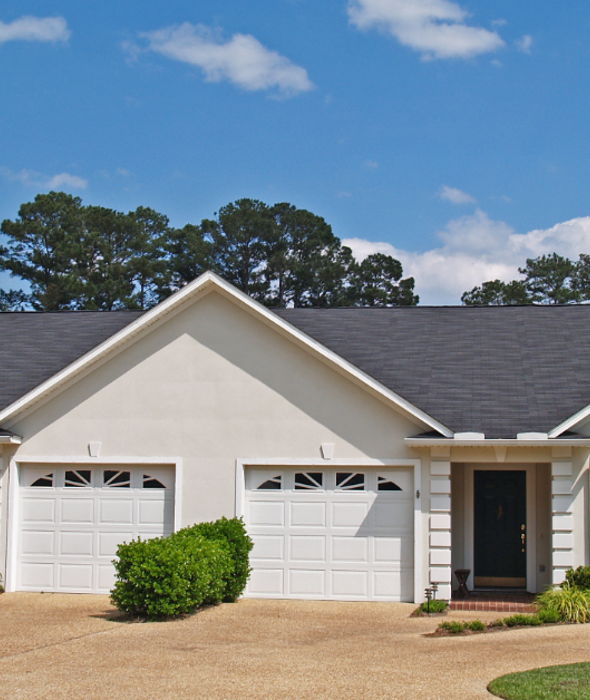
Share this Post

Need help with your money or investments? Book a consultation to learn more about working together.
Should I Buy a Duplex?
[Prefer to listen? You can find a podcast version of this article here: E259: Should I Buy a Duplex?]
Buying a duplex can feel like getting the best of both worlds—you become a homeowner and an investor at the same time. But like any real estate decision, purchasing a duplex comes with its own set of advantages, challenges, and important financial considerations.
Before you make the leap, it’s important to look carefully at the true costs, mortgage logistics, maintenance demands, tenant management responsibilities, and the long-term outlook.
What Is a Duplex?
A duplex is a residential building divided into two separate units, usually with their own entrances and living spaces. Many duplex owners choose to live in one unit and rent out the other, using rental income to offset their mortgage and other expenses.
It sounds appealing—and it can be—but owning a duplex comes with a unique set of responsibilities compared to owning a single-family home.
Cost Considerations
At first glance, a duplex often costs more than a single-family home of comparable size. That’s because you’re buying two homes in one.
However, the potential rental income can dramatically change the math. If the second unit generates reliable rental payments, it can help cover a significant portion—or even all—of your mortgage.
It’s important to go into the purchase with realistic expectations about rent prices in your area. If the rental market softens, you’ll want to be sure you can comfortably cover the mortgage without relying entirely on tenant payments.
Keep in mind that a duplex can also mean higher insurance costs, property taxes, and ongoing maintenance expenses. Make sure your budget includes a healthy cushion for these additional costs.
Mortgage Considerations
Financing a duplex is different than financing a single-family home, but not by much—especially if you’re planning to live in one of the units.
Many lenders treat an owner-occupied duplex as a primary residence, which often means more favorable mortgage terms: lower down payments, better interest rates, and easier qualification standards compared to investment properties.
You may be able to qualify for an FHA loan with as little as 3.5% down if you plan to live in one of the units. Conventional loans usually require a larger down payment, especially if rental income is being counted toward your qualifications.
However, if you're buying a duplex purely as an investment (meaning you won’t live in either unit), expect a higher down payment requirement—often 20% to 25%—and higher interest rates.
When applying for a mortgage, lenders will often consider a portion of the expected rental income to help you qualify. This can work in your favor, but be aware that lenders typically only count 75% of rental income toward your qualifying income to account for vacancies and other potential issues.
Resale Value
Duplexes can be a bit trickier to resell compared to single-family homes.
The buyer pool for duplexes is smaller. You're generally appealing to investors or owner-occupants who are specifically looking for an income-generating property.
Because of this, the market can be less competitive when it’s time to sell, and your property might take longer to move.
That said, a well-maintained duplex in a desirable area can still be a very attractive asset, especially if it comes with strong rental history and high occupancy rates. Buyers love seeing consistent, predictable cash flow.
Location matters a lot. Urban areas, college towns, and regions with tight housing markets tend to have higher demand for duplexes, both for renters and for future buyers.
Maintenance and Day-to-Day Issues
Owning a duplex means doubling the maintenance responsibilities. Even if the second unit is generating rent, you’re responsible for ensuring both units remain in good condition.
Some common maintenance issues to plan for include:
- Plumbing and electrical repairs for two kitchens and two bathrooms (at minimum)
- Roof and structural upkeep impacting both units
- Landscaping and exterior maintenance
- Heating and cooling systems for both sides
If you share walls, driveways, or outdoor spaces with your tenant, disputes over maintenance responsibilities can arise. Be proactive about setting clear boundaries and expectations from the beginning.
Expect that emergencies will happen. A tenant’s plumbing issue at 2 am becomes your issue, too—whether you’re home or not.
Many duplex owners hire property managers, even for small properties, to help with these challenges. But that adds an additional cost you’ll need to factor into your financial planning.
Living Next to Your Tenants
If you’re living in one side of the duplex, your experience will depend heavily on your relationship with your tenants.
At best, it can be a pleasant, convenient arrangement. At worst, it can become uncomfortable if boundaries aren't clearly established.
You need to be prepared to enforce lease terms even if you’re living next door. That means having difficult conversations about late rent, noise complaints, property damage, or other lease violations.
It’s critical to screen tenants carefully. Verify income, check references, and review their rental history thoroughly. Remember, you’re not just choosing a tenant—you’re choosing a neighbor.
Also, be mindful that your presence can impact the tenant’s sense of privacy. Some tenants may feel uncomfortable living so close to their landlord, which could affect your ability to attract and retain renters.
Other Considerations
Zoning and Legal Compliance
Before you purchase a duplex, make sure it’s properly zoned and that you understand the local laws governing rental properties.
Some municipalities have strict rules about rental licensing, inspections, and safety requirements (like smoke detectors, carbon monoxide detectors, and egress windows).
Violating these regulations can result in hefty fines—or worse, being forced to evict tenants or shut down rental operations until you bring the property up to code.
Insurance Needs
Insurance for a duplex is more complex than a standard homeowner’s policy.
You'll typically need a policy that covers both your personal residence and the rental property component. This often falls under a landlord insurance policy, even if you live in one of the units.
Landlord insurance covers property damage, liability issues, and loss of rental income if the unit becomes uninhabitable due to a covered event.
Tenants should also carry renter’s insurance to protect their personal belongings.
Emotional and Time Commitment
Owning a duplex demands more emotional bandwidth and time than owning a traditional single-family home.
You’re not just a homeowner—you’re a landlord, a maintenance manager, and sometimes even a conflict negotiator.
If your schedule is already packed, or if you prefer a more hands-off living experience, a duplex may not be the right fit unless you hire help.
On the other hand, if you’re organized, communicative, and ready for the responsibility, owning a duplex can be a powerful wealth-building tool.
Is a Duplex Right for You?
Buying a duplex can offer major financial benefits, including the potential to live for a significantly reduced cost or even create positive cash flow each month.
However, it’s not without risks and demands. Carefully evaluate your financial situation, your risk tolerance, and your willingness to be a landlord.
A duplex might be the perfect stepping stone to building long-term wealth—but only if you’re ready for everything that comes with it.

